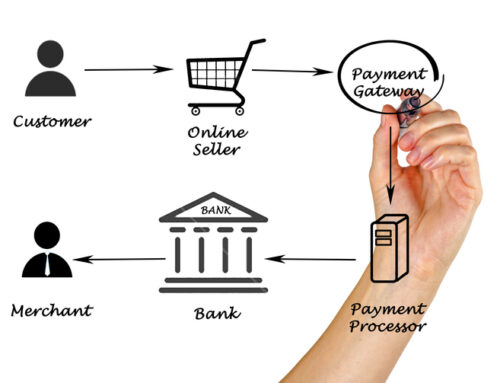How do you evaluate your business idea? The fact that you’re asking this before jumping into business is a great sign. Many entrepreneurs start their business on a whim only to fail a few years later.
While it’s impossible to guarantee that your business will succeed, taking the time to evaluate your business idea before opening your doors to customers will give you a boost when it comes to making sales.
Four Ways to Evaluate Your Business Idea
There are endless ways to evaluate your business idea. This post will focus on four. Two of these ideas focus on you, the business owner, and two focus on your customers.
1. Knowledge
Arming yourself with knowledge is one of the best things you can do for yourself and your business before you get started. Of course, it’s nice to have expert knowledge of your product or service, and we’re going to assume you already have that, but it’s just as important to have knowledge about your customers and competitors.
We’ll talk about the kind of knowledge you need to have about your customers in points three and four below. For now, let’s discuss your competitors.
Knowing your competitors will help you figure out where you fit in the market. Is there a gap in the market? Gaps occur when customers’ needs aren’t being met. Will your product or service fill this gap? This is key in setting your business up for success.
It’s also important to know your ideal customers so you know what to charge for your products or services. You might be able to fill the gap in the market, but if you can’t fill it for the price customers are willing to pay then you might as well not be in the market at all.
2. Commitment
Venturing into entrepreneurship isn’t something to be taken lightly. There’s truth to the saying that most businesses fail within the first five years. This is because working for yourself takes a lot of commitment to your product or service.
We talk about time and money a lot on our blog, and it’s because, when you’re an entrepreneur, you need to watch both very carefully.
Time
The biggest question to ask yourself about time is are you willing to put in the time necessary to be successful in your business? If so, how do you plan to put in this time?
For example, you might be starting your business on the side while working a full-time job. This is a fine way to start a business, but you need to be prepared that it might take longer to get your business up and running, because you have a limited amount of time to put into it. In this case, you need to prepare for the long game. Patience is key in the situation where you are working a full-time job and trying to get a business off the ground at the same time.
Money
There always seems to be a trade-off when it comes to time and money. If you don’t have a lot of time, you will need to hire people to do the tasks you don’t have time to do yourself. If you don’t have a lot of money, then you’ll need to find the time to do all those tasks for yourself.
For this reason, you may require patience when it comes to money as well. You might not have all the money you need to get your business off the ground right away. This is why a budget, even when you’re just starting out, is so important.
When completing a budget for a new business, you will need to do a lot of research to make sure your costs are accurate. Even if you’ve done your research, you’ll want to add a little extra padding into your budget so you don’t run short when you start putting your business plan into action.
Let’s move on to how to evaluate your business idea when it comes to attracting customers.

3. Need
If you’ve already identified a gap in the marketplace for your industry, you likely already know there’s a need for your product or service. If not, then you’ll need to do some market research in order to find out if your products or services will sell when you market them.
Where would-be entrepreneurs often get into trouble is coming up with a business idea with no viable market base. Just because you think a product or service is a good idea, doesn’t mean that people will buy it. You need to do the research in order to determine if you will be able to make the sales you’ll need to meet your income goals.
Ask your friends and family, conduct surveys of potential customers in the physical or online area where you plan to set up. This can be tough if you’re not ready to announce your idea yet, but you’ll be glad you did the research once your business is off the ground and the sales are rolling in.
4. Reach
Reach is all about who you know. Even if you don’t have a large network, you can still launch a business successfully. Consider ahead of time how you will spread the word about your business. Would you be willing to join networking groups if it meant business contacts for you?
Your local Chamber of Commerce is a great place to start making connections. There are also many free online business groups available through social media. If you have friends who are entrepreneurs, ask them what networking opportunities they recommend. Your accountant can likely recommend a great network too.
There is a lot to consider when starting a business. Do yourself a favour and take some time to consider the work involved in getting your business off the ground. Do some research and make a plan. By doing so, you will give yourself the best chance of success.
To read tried and true advice from successful entrepreneurs, check out Alissa’s book 100 Entrepreneurs: Journeys and Advice. And, as always, if you have questions about your business idea, complete this form to get in touch with us.





